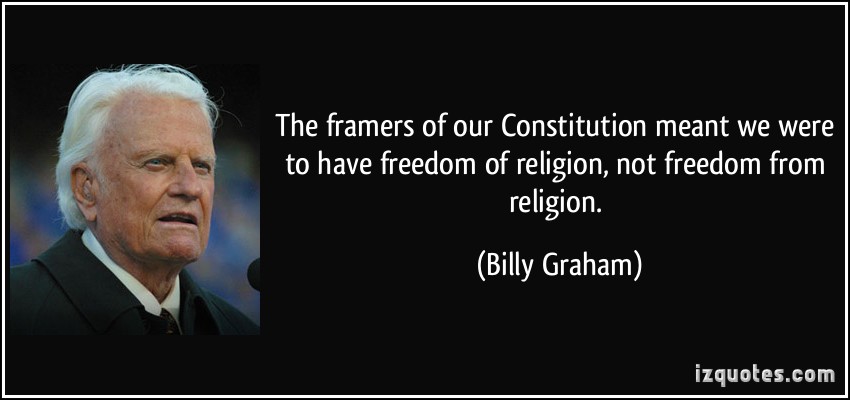Essay quotations
Table of Contents
Table of Contents
As anyone who has ever tried to explain a quote knows, it can be a difficult task. Quotes are often packed with meaning, and trying to distill that meaning down into a few simple words can be a real challenge. However, being able to explain a quote is an important skill to have. It allows us to communicate effectively, share our ideas with others, and understand the world around us. In this article, we’ll discuss some tips and strategies for how to explain a quote.
The Pain Points of Explaining a Quote
One of the biggest pain points of explaining a quote is figuring out where to start. How do you choose which aspects of the quote to focus on? How do you decide what parts of the quote are most important? Another challenge is making sure your explanation is clear and concise. You don’t want to ramble on and on, but you also don’t want to leave out important details. Finally, it can be difficult to put the quote in context. Quotes are often taken out of their original setting, and it can be hard to understand their full meaning without that context.
How to Explain a Quote
The best way to explain a quote is to start by breaking it down into its component parts. Look at each word and phrase and try to figure out what it means. Then, think about what the quote is trying to say as a whole. What is the main idea the author is trying to communicate? Once you’ve identified the main idea, try to put it into your own words. Remember to keep your explanation simple and concise. Don’t get bogged down in the details, but make sure you cover all the important points. Finally, try to put the quote in context. What was happening at the time the quote was written? Who was the author? What else do you know about the time period or the author’s life that might help you understand the quote better?
Summary of Main Points
In summary, when explaining a quote, it’s important to break it down into its component parts, identify the main idea, put it into your own words, keep your explanation simple and concise, and put the quote in context by considering the author’s background and the historical context. By following these steps, you can provide a clear and accurate explanation of any quote.
Targeting How To Explain A Quote: Personal Experience
As a writer, I often find myself trying to explain quotes in my work. One quote that I’ve struggled with in the past is Albert Einstein’s famous statement: “If you can’t explain it simply, you don’t understand it well enough.” At first glance, this quote seems straightforward enough. But the more I thought about it, the more I realized how complex it really is. What does it mean to “understand” something? And what does it mean to “explain it simply”? Through some research and reflection, I came to the conclusion that what Einstein was really getting at was the importance of being able to communicate complex ideas effectively to others.
 To explain this quote to someone else, I might start by breaking it down into its component parts. The first part of the quote, “If you can’t explain it simply,” means that being able to simplify complex ideas is important. The second part, “you don’t understand it well enough,” suggests that if you can’t do this, you don’t really understand the idea yourself. From there, I might give an example of a complex idea that I had trouble explaining to someone else, and explain how I tried to simplify it to make it more understandable.
To explain this quote to someone else, I might start by breaking it down into its component parts. The first part of the quote, “If you can’t explain it simply,” means that being able to simplify complex ideas is important. The second part, “you don’t understand it well enough,” suggests that if you can’t do this, you don’t really understand the idea yourself. From there, I might give an example of a complex idea that I had trouble explaining to someone else, and explain how I tried to simplify it to make it more understandable.
How to Apply This to Daily Life
One way to apply the principles of explaining a quote to daily life is to practice explaining things to others. This could be a complex idea, a news article, or something else that you find interesting. By practicing your explanation skills, you’ll become more confident in your ability to communicate effectively. You can also try to find and explain quotes that are relevant to your life or work, and use them as a starting point for deeper discussions.
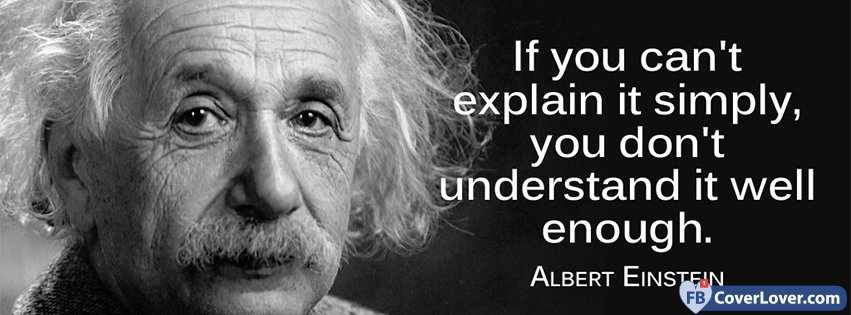 ### Explaining Quotes in a Professional Setting
### Explaining Quotes in a Professional Setting
If you work in a field that requires you to explain complex ideas to others, being able to explain quotes is a valuable skill. For example, if you’re a teacher, you may need to explain quotes to your students as part of a lesson. If you’re a writer, you may need to explain quotes in your work or in interviews. To do this effectively, it’s important to keep your audience in mind. What background knowledge do they have? What level of detail do they need? Understanding your audience will help you tailor your explanation to their needs.
The Importance of Context
When explaining a quote, it’s also important to consider the context in which it was written or spoken. Context can greatly affect the meaning of the quote, so it’s important to do your research before attempting to explain it to others. For example, a quote about religion may have a different meaning if it was spoken during a time of religious conflict than if it was spoken during a time of religious tolerance.
Personal Experience with Explaining Quotes
As a writer, I’ve had to explain many quotes in my work. One quote that I found particularly challenging was Friedrich Nietzsche’s statement: “God is dead.” This quote is often misinterpreted to mean that Nietzsche was an atheist or anti-religious. However, when you look at the context in which the quote was written, you can see that Nietzsche was actually making a statement about the decline of traditional values in society. By understanding this context, you can understand the true meaning of the quote.
 Question and Answer
Question and Answer
Q: How do you know which parts of a quote to focus on when explaining it?
A: The best way to figure out which parts of a quote to focus on is to identify the main idea the author is trying to communicate. Look at each word and phrase and think about what it means in the context of the quote as a whole. From there, you can determine which parts of the quote are most important to explaining the main idea.
Q: How important is context when explaining a quote?
A: Context is extremely important when explaining a quote. The meaning of a quote can vary greatly depending on the context in which it was written or spoken. It’s important to understand the historical and cultural background of the quote in order to accurately explain its meaning.
Q: What are some tips for keeping your explanation of a quote simple and concise?
A: To keep your explanation simple and concise, try to identify the main idea of the quote and focus on that. Don’t get bogged down in details, but make sure you cover all the important points. Use clear and direct language, and avoid using technical jargon or overly flowery language.
Q: Why is being able to explain a quote important?
A: Being able to explain a quote is important because it allows us to communicate effectively, share our ideas with others, and understand the world around us. By breaking down a quote into its component parts and putting it in context, we can gain a deeper understanding of the meaning behind it.
Conclusion of How To Explain A Quote
Explaining a quote can be a challenging task, but by following the tips and strategies outlined in this article, you can provide a clear and accurate explanation of any quote. By breaking the quote down into its component parts, identifying the main idea, keeping your explanation simple and concise, and putting the quote in context, you can communicate complex ideas effectively to others.
Gallery
“If You Can’t Explain It Simply,…” – Albert Einstein – A Pondering Mind
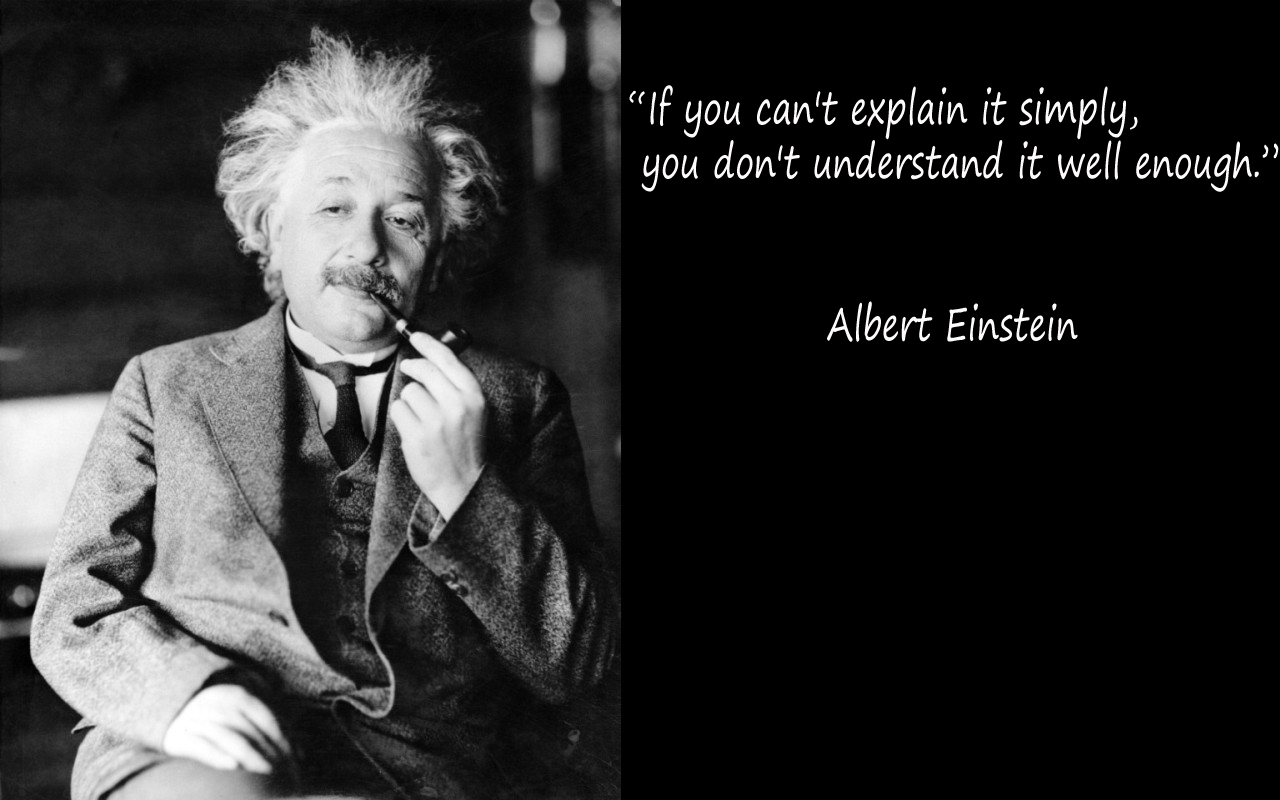
Photo Credit by: bing.com / albert einstein quotes explain if simply quote wallpaper desktop simple teaching
How To Explain A Quote - ShortQuotes.cc

Photo Credit by: bing.com / essay quotations
Explain Simply Albert Einstein Quote Quotes And Sayings Facebook Cover

Photo Credit by: bing.com / einstein albert explain simply quote quotes sayings covers cover fbcoverlover maker
Albert Einstein Quote: “If You Can’t Explain Something Simply, You Don
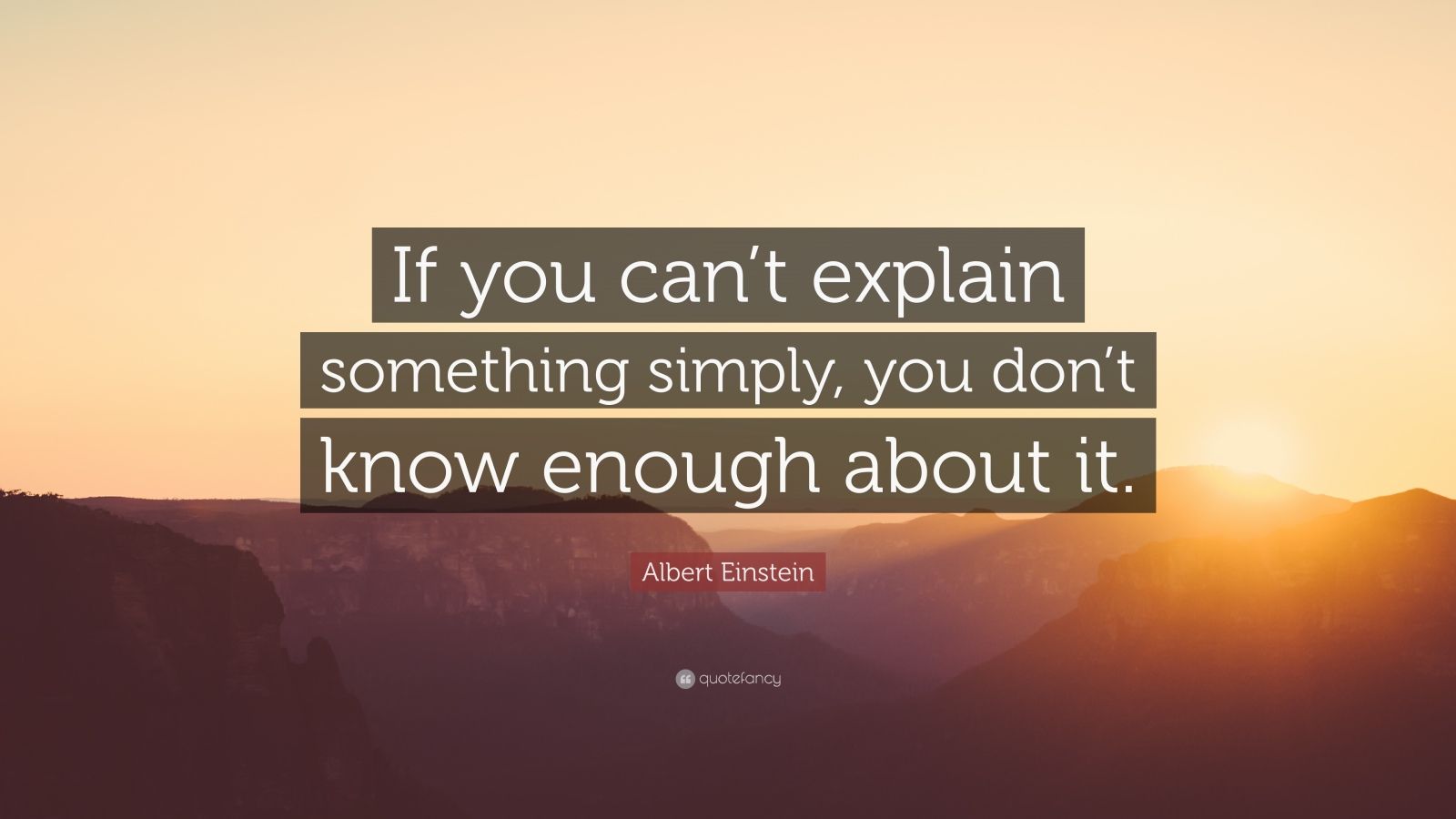
Photo Credit by: bing.com / explain if simply something know don enough einstein quote albert wallpapers quotes quotefancy wallpaper
Quote: “If You Can’t Explain
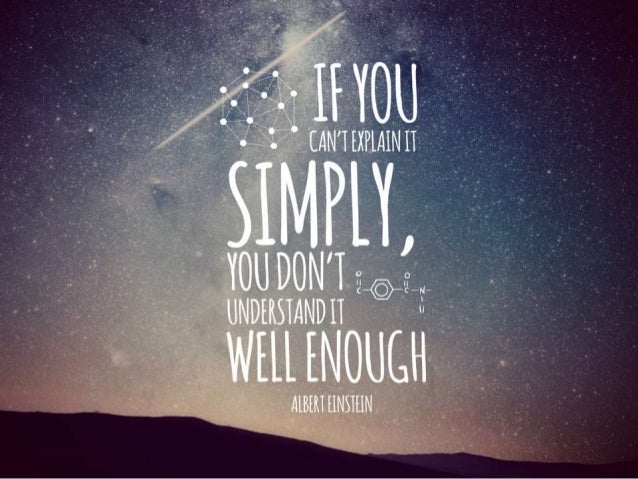
Photo Credit by: bing.com / if quote explain quotes understand cant don inspiring simply enough slideshare einstein well albert

